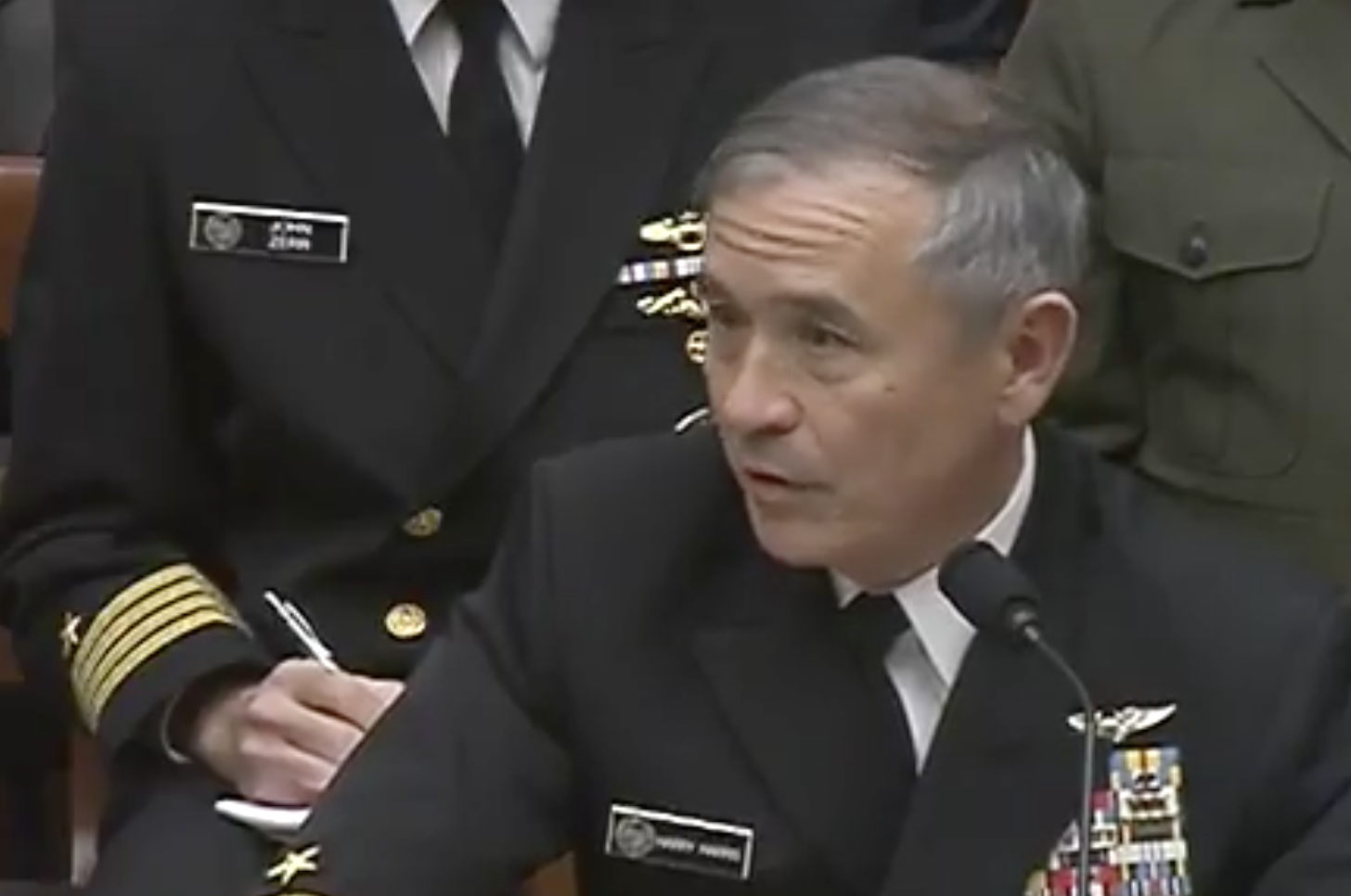Adm. Harry Harris, commander of the US Pacific Command, told the House Armed Services Committee Wednesday the US must accept the military importance of space. ?HASC video screenshot.
The United States must accept the military importance of space, as do other countries, the commander of the US Pacific Command told the House Armed Services Committee Wednesday.
Adm. Harry Harris made the comments as the sole witness at a committee hearing on the military posture and security challenges in the Indo-Asia-Pacific region. He also headed off challenges to the Air Force’s decision this week to stop recapitalizing JSTARS in favor of a new disaggregated battlefield management command and control system that may or may not be platform specific in the future.
The United States has “been led astray by viewing space as some kind of a fuzzy panda bear thing,” said Harris. Meanwhile, China, Russia, and others have viewed space as the “ultimate high ground” and are preparing for battle in space.
In his written statement to the committee, Harris said US adversaries continue to develop ways to block US space-enabled capabilities.
“China continues to pursue a broad and robust array of counter-space capabilities, which include direct-ascent anti-satellite missiles, co-orbital anti-satellite systems, cyber attack and exploitation capabilities, directed energy weapons, and ground-based satellite and PNT [positioning, navigation, and timing] jammers, “ he said.
North Korea also “continues to develop and employ SATCOM [satellite communications] and PNT jammers,” while continuing work on nuclear weapons and ballistic missiles, despite being banned under a UN Security Council resolution, added Harris.
The United States is just coming to the realization that it is going to have to change its view of space, and “that it is a place of importance in terms of battlefield dominance,” added Harris.
However, Rep. Austin Scott, one of two Republican committee members from Georgia, where JSTARS is based, questioned whether the US is “becoming too dependent on space,” and worried about a “lack of redundancies” if the Pentagon eliminates existing systems in favor of systems that may or may not work.
Rep. Jody Hice (R-Ga.) also questioned whether forsaking the JSTARS program for other platforms might leave the United States vulnerable.
Harris told the committee he supported the Air Force on the issue, saying it is up to the service to decide how it will fulfill its intelligence, surveillance, and reconnaissance mission. “My requirement is the requirement for the capability and I tend to be platform-agnostic on all of these things, “ he said. “If the Air Force says the JSTARS platform is obsolete or trending toward obsolescence, and they have another way to meet that capability, I’m OK with that.”
